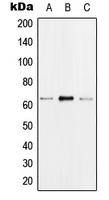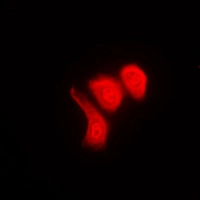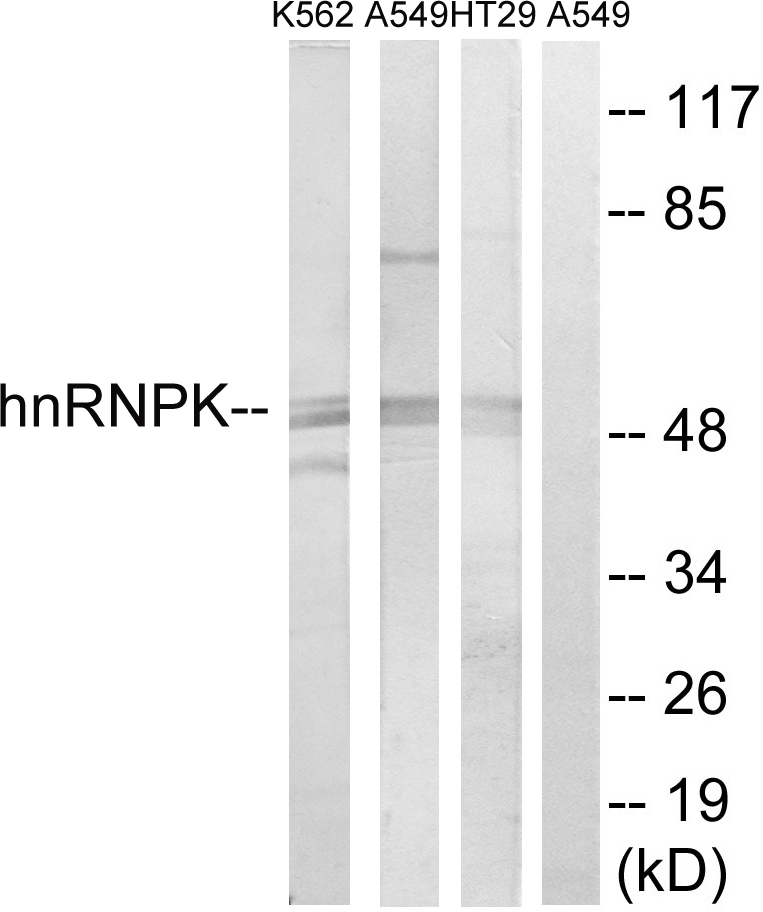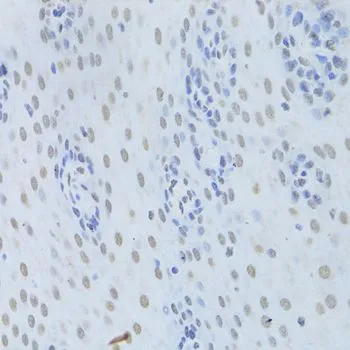
WB analysis of EGF-treated MCF7 (A), EGF-treated Raw264.7 (B), EGF-treated H9C2 (C) whole cell lysates using GTX32194 hnRNP K (phospho Ser284) antibody.
hnRNP K (phospho Ser284) antibody
GTX32194
ApplicationsImmunoFluorescence, Western Blot, ImmunoCytoChemistry
Product group Antibodies
ReactivityHuman, Mouse, Rat
TargetHNRNPK
Overview
- SupplierGeneTex
- Product NamehnRNP K (phospho Ser284) antibody
- Delivery Days Customer9
- Application Supplier NoteWB: 1:500 - 1:1000. *Optimal dilutions/concentrations should be determined by the researcher.Not tested in other applications.
- ApplicationsImmunoFluorescence, Western Blot, ImmunoCytoChemistry
- CertificationResearch Use Only
- ClonalityPolyclonal
- ConjugateUnconjugated
- Gene ID3190
- Target nameHNRNPK
- Target descriptionheterogeneous nuclear ribonucleoprotein K
- Target synonymsAUKS, CSBP, HNRPK, TUNP, heterogeneous nuclear ribonucleoprotein K, dC-stretch binding protein, transformation upregulated nuclear protein
- HostRabbit
- IsotypeIgG
- Protein IDP61978
- Protein NameHeterogeneous nuclear ribonucleoprotein K
- Scientific DescriptionThis gene belongs to the subfamily of ubiquitously expressed heterogeneous nuclear ribonucleoproteins (hnRNPs). The hnRNPs are RNA binding proteins and they complex with heterogeneous nuclear RNA (hnRNA). These proteins are associated with pre-mRNAs in the nucleus and appear to influence pre-mRNA processing and other aspects of mRNA metabolism and transport. While all of the hnRNPs are present in the nucleus, some seem to shuttle between the nucleus and the cytoplasm. The hnRNP proteins have distinct nucleic acid binding properties. The protein encoded by this gene is located in the nucleoplasm and has three repeats of KH domains that binds to RNAs. It is distinct among other hnRNP proteins in its binding preference; it binds tenaciously to poly(C). This protein is also thought to have a role during cell cycle progession. Several alternatively spliced transcript variants have been described for this gene, however, not all of them are fully characterized. [provided by RefSeq, Jul 2008]
- ReactivityHuman, Mouse, Rat
- Storage Instruction-20°C or -80°C,2°C to 8°C
- UNSPSC12352203





![ICC/IF analysis of HeLa cells using GTX15882 hnRNP K antibody [F45 P9 C7]. Panel e is a no primary antibody control. Green : Primary antibody Blue : Nuclei Red : Actin Fixation : 4% paraformaldehyde Permeabilization : 0.1% Triton X-100 for 10 minute Dilution : 5 μg/ml in 0.1% BSA and incubated for 3 hours at room temperature](https://www.genetex.com/upload/website/prouct_img/normal/GTX15882/GTX15882_346_ICC-IF_w_23060620_816.webp)


